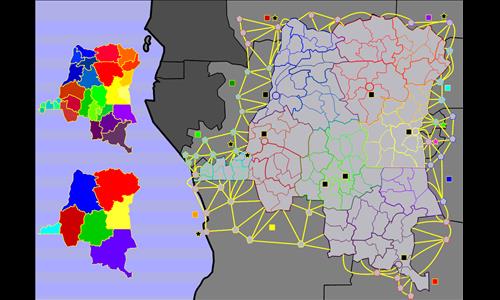 |
Congo CrisisCreated by Edouard (all)State: Public AI: Prod 2.0 with randomness Went public on 2/3/2021 Number of attempts: 90 Number of wins: 48 Number of likes: 11 Record holder: DrUm in 14 turns on 4/24/2021 |
Description |
As the tide of decolonisation swept across Africa, a generation of African leaders came to the fore, vigorously striving to reclaim the land of their ancestors. An independent Africa was on the rise. Among the champions of national independence was Patrice Lumumba, a charismatic and eloquent youth from Belgian Congo. As pressure mounted on Belgium, the fear for a revolutionary war, like the one in Algeria, ultimately led to the decision to grant Congo its long-sought independence. Addressing on the decision, the Belgian king applauded the Belgian "civilising mission" and praised his brutal predecessor, who was responsible for at least half a million deaths in Congo Free State. Enraged, Lumumba gave a speech condemning colonialism, which led to hostilities from Belgium and the US. Later, he was democratically elected as Prime Minister of Congo. In 1960, with the support of Belgian business interests and over 6000 Belgian troops, the mineral rich province of Katanga in the southeast declared independence as the State of Katanga. Lumumba then appealed to the UN for help to restore national integrity, yielding little results. Frustrated, he turned to the Soviets, who immediately dispatched resources and advisors. This gave the US perfect excuse to accuse him as a communist and install a pro-US regime. Lumumba was then swiftly dismissed, imprisoned, tortured and eventually executed over the course of a few months. Meanwhile, with US support, Joseph Mobutu seized power in a military coup, suspending parliament and the constitution. Later he would become one of Africa's most notorius autocrats, known for his abuses, kleptocracy, cronyism and eccentricity, though one of the US' most important asset in its anti-Soviet crusade in Africa. Lumumba's death aroused a highly emotional atmosphere charged with anti-colonial feelings and rhetoric in the "Unfree World". He left a legacy of struggle, of justice, and most importantly, hope. The spirit of Lumumba lives on. |